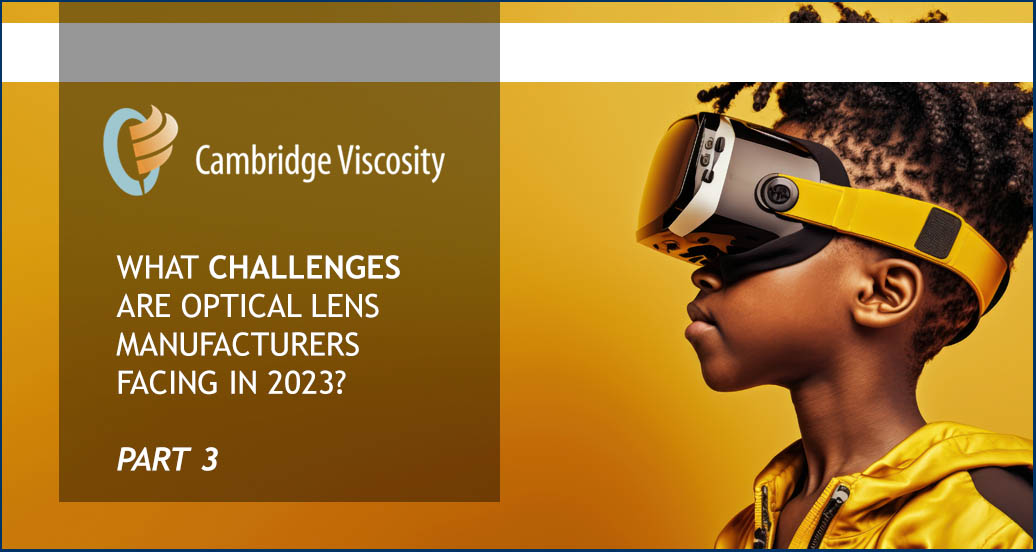We originally wrote this document in 2021 to highlight the challenges that optical manufactures are facing. Now, two years later, Cambridge Viscosity has again looked at the industry and identified some of the most critical challenges faced by optical lens manufacturers.
Part 3 - Challenges Optical Lens Manufacturers are Facing in 2023
Aug 10, 2023 1:13:04 PM / by Admin posted in Coating, ViscoPro 2100, optical coating viscosity
Part 2 - Challenges Optical Lens Manufacturers are Facing in 2023
Aug 1, 2023 9:27:44 AM / by Admin posted in Coating, ViscoPro 2100, optical coating viscosity
We originally wrote this document in 2021 to highlight the challenges that optical manufactures are facing. Now, two years later, Cambridge Viscosity has again looked at the industry and identified some of the most critical challenges faced by optical lens manufacturers.
What Challenges are Optical Lens Manufacturers Facing in 2023?
Jun 29, 2023 11:38:01 AM / by Admin posted in Coating, ViscoPro 2100, optical coating viscosity
We originally wrote this document in 2021 to highlight the challenges that optical manufactures are facing. Now, two years later, Cambridge Viscosity has again looked at the industry and identified some of the most critical challenges faced by optical lens manufacturers.
How to spend less time managing coating thickness
Oct 27, 2021 9:46:17 AM / by Patrick Riley posted in coating viscosity, optical coating viscosity, temperature compensated viscosity
Over the last few decades, optical coating technologies have been becoming progressively more complex. Optics control light in a manner to make a product useful, and coatings do a great job in that by modifying how light is transmitted, absorbed, and reflected to make the product more efficient and functional. Optical coatings are made up of several thin film layers, creating an interference effect. How the coating works depends on variables like the number of layers, the thickness of each coating layer, and the different refractive indices of each layer.







